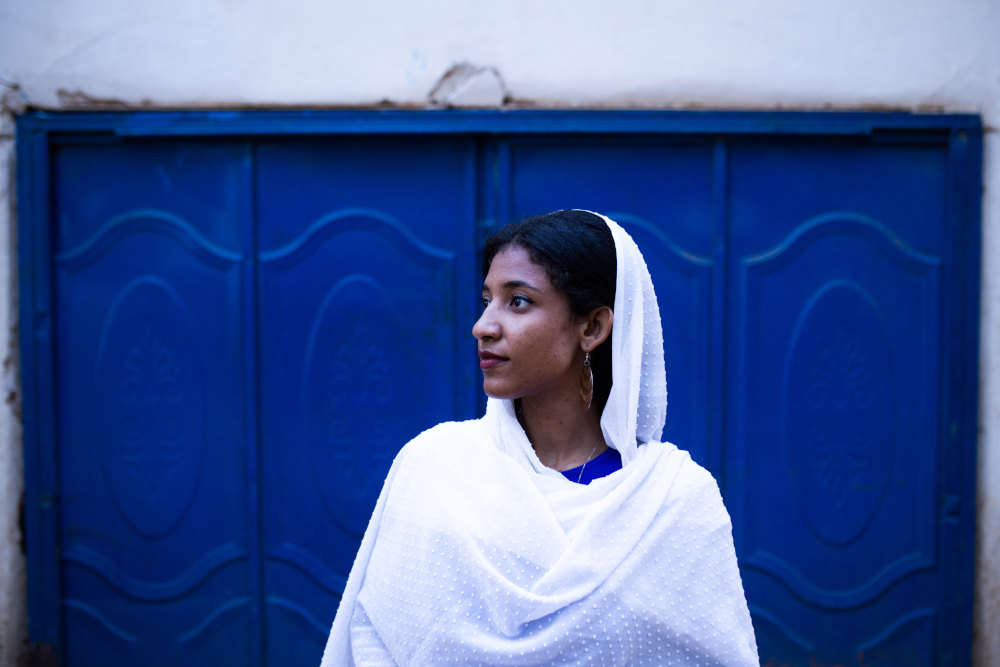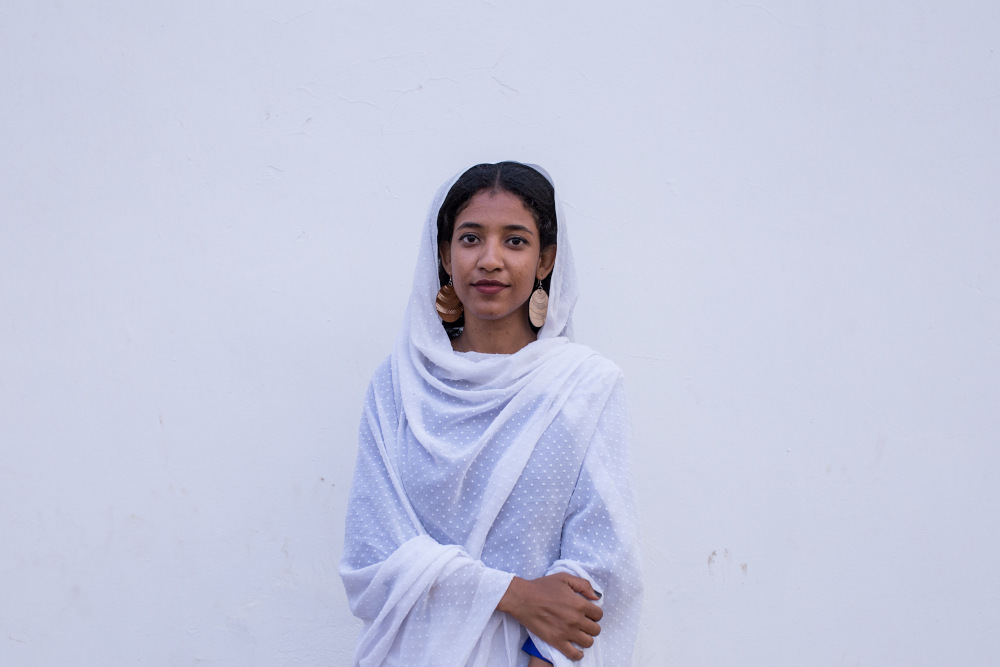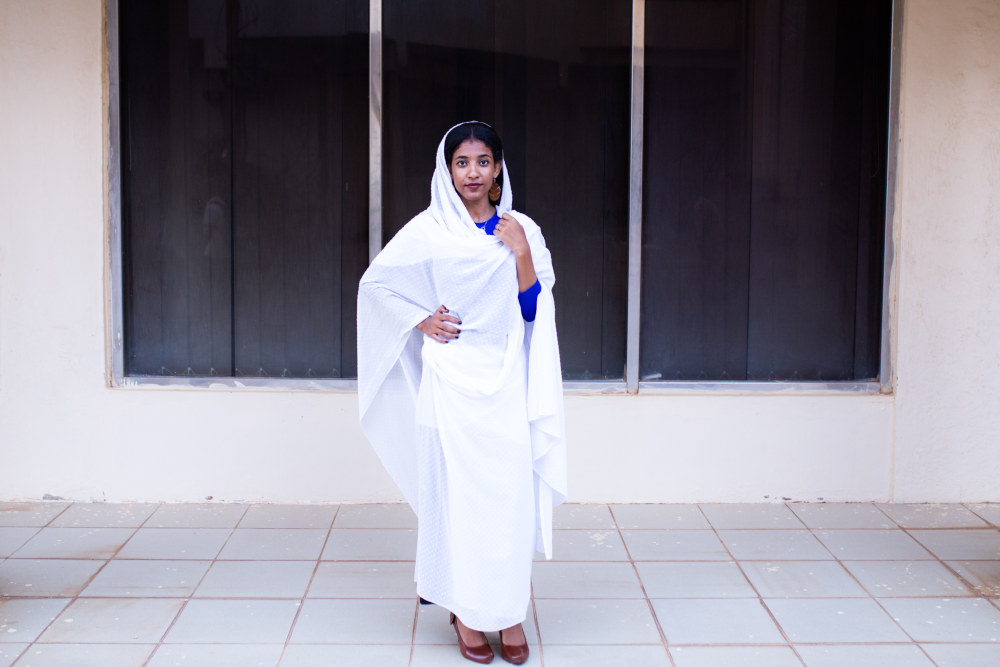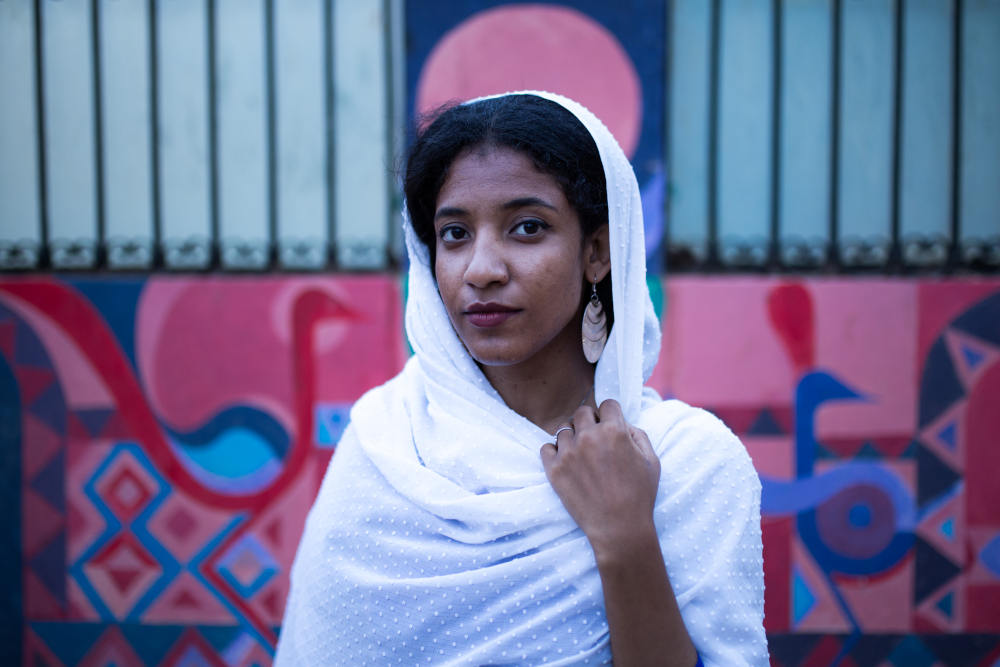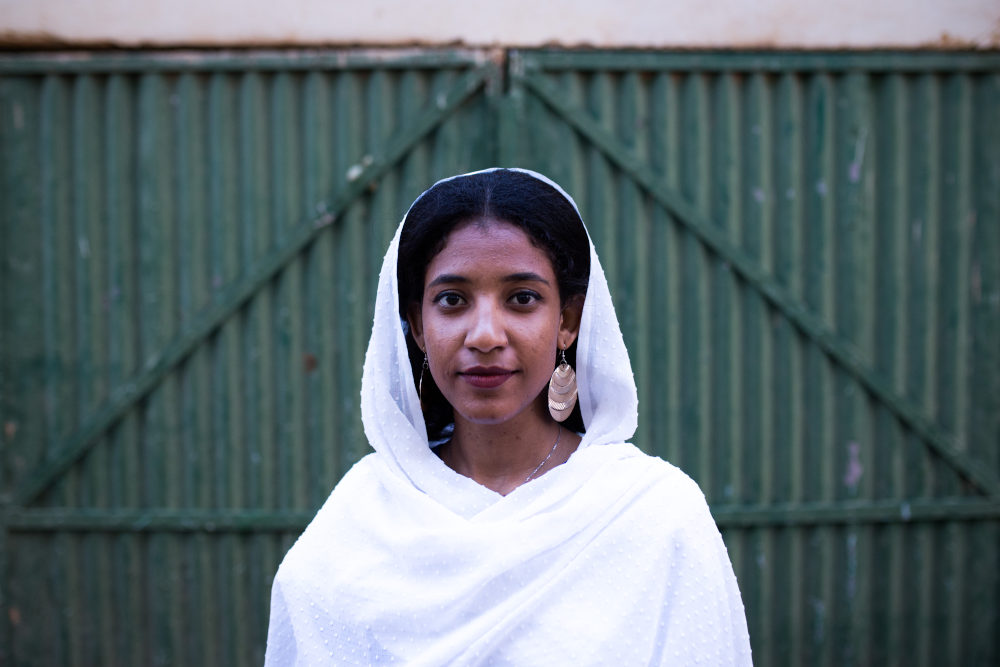Iwas at the University the day the spark of the revolution began. I realized that I must respond to the call of the homeland and that we have the ability to topple the defunct regime and build the Sudan that we dream of. After that, I stopped studying and participated in the peaceful demonstrations throughout a period of the seven months where we kept demanding our slogan: “for freedom and peace and justice.”
Our goals have been clear since the beginning of the revolution. [We wanted] accountability for the former regime who exhausted us with bloodshed and a ruined the economy. Everyone who is guilty [should] take punishment. We defended and demanded retribution for the martyrs and for every one to receive justice. All who are guilty should be held accountable and all who have been oppressed should have justice.
I do not belong to any political party. I went out [to protest] for the sake of the homeland and to say that Sudan is above all and Sudan is above every party, sect, and [politician]. I went out for the sake of the martyrs who gave their lives for this homeland. And I went out to reject all forms of violence and all forms of racism, both religious and tribal. And we went out because of the policies of the careless government which affected all aspects of life: “political, social, economic, and even psychological.” I also went out because I am one of the young people who ignored our role and stayed away from the political scenes. [As a consequence] young people began suffering from The State not keeping up with our aspirations and desires. I came out because I am one of these people.
[During the protest] I recited the poem “The shot is not what kills…what kills is the silence of the man” by the Sudanese poet Azhari Muhammed Ali. The poem was written during the revolution of September 2013. It is a poem whose words were able to depict and describe the reality of Sudan and the reality of the revolution in a very accurate way.
In the glorious December Revolution, women played a very active role and were the dynamo of the engine of the revolution. They made a lot of sacrifices. They were subjected to all forms of violence, beatings, arrest, and rape. Despite all of this, they remained strong and we saw them on the front lines of the demonstrations, demanding rights for their people and their homeland.
I feel both proud and responsible. Women should demand their rights peacefully, whatever the circumstances and should not be satisfied by a diminished role in society. They are strong, brave, and able to make change.
I hope we see a democratic Sudan, a country of freedoms, and that we see Sudan in its natural place, a Sudan for all, radiating peace and freedom.
Alaa Salah, Khartoum Sudan
Images by Salih Basheer
Translated from Sudanese Arabic by Jackson Goldberg

